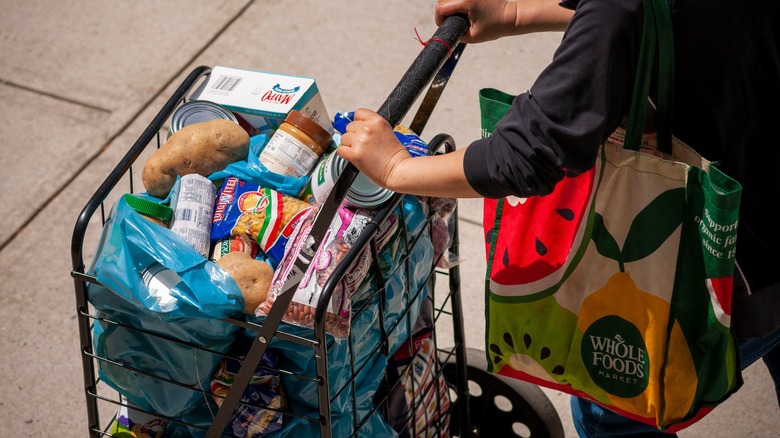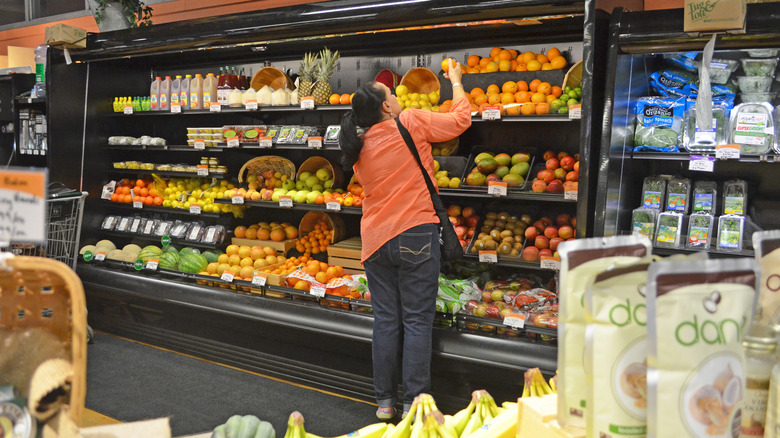How Food Co-Ops Have Become Pivotal In Addressing Food Insecurity
Cooperative community grocery stores have a long history of trying to fix harmful food systems, but that role has become even more vital in recent years. Many food supply chains struggled during the COVID-19 pandemic and worsened food insecurity for many Americans. The USDA recently announced that 13.5 million Americans are currently estimated to be experiencing some level of food insecurity. These challenges have presented an opportunity for local cooperative grocers to step in, and boost their communities.
Food co-ops were always meant to help out the little guy. Co+op says that the first co-op grocery stores were designed to compete against larger grocers that were selling poor-quality foods to maximize their profits. Daily Groceries notes that some grocers at the time would cut flour with chalk as a way to save money, and cheat consumers. In 1843, the Rochdale Equitable Pioneers Society was formed and opened one of the earliest cooperative grocery stores a year later. The Rochdale, England residents came together to help their neighbors fight against a corrupt system.
Over the years, co-ops would be used to also boost local economies. Daily Groceries notes that because co-ops are owned by their shoppers, and focused on local sourcing, much of the money being spent there recirculates into the local economy. This helps put food on your neighbor's table in more than one way.
Co-ops are well equipped to address inequality
One of the greatest strengths of a food co-op is its ability to address food desserts. UrbanCORE reports that predominantly Black neighborhoods in Charlotte, North Carolina had been underserved and ignored by corporate grocery chains for decades. In response, community leaders are organizing with UNC Charlotte's Urban Research and Community Engagement program to design two community-driven grocery stores to address that inequality.
According to Civil Eats, a similar project is taking root in Detroit, Michigan. The Detroit People's Food Co-op is set to open next year and hopes to address food insecurity in predominantly low and middle-income African-American neighborhoods. C.E. Pugh, the CEO of co-op member association National Co+op Grocers, says co-ops are now uniquely positioned to address inequality in stores by reinvesting in a local, more resilient food system.
Civil Eats says that co-ops actually thrived during the pandemic's supply chain struggles because they were already focused on these local providers, and better equipped to keep their shelves well stocked. The Cooperative Development Institute points out that co-ops are also able to address multiple issues because they can more easily shift their design than large companies. For example, the Detroit People's Food Co-op will be boosting local food systems and providing healthy food to neighborhoods. Shifting away from exclusively organic products also makes nutritious food more accessible for low and middle-income residents.

